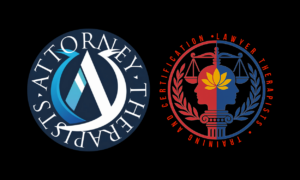In an era marked by increasing politicization of federal agencies, attorneys practicing in large law firms across the United States are facing a mounting source of psychological strain: the Equal Employment Opportunity Commission’s (EEOC) recent demands for internal information from major firms, potentially infringing upon attorney-client privilege. This unprecedented development raises fundamental concerns not only about legal ethics and professional responsibility, but also about the psychological toll such governmental overreach is taking on legal practitioners.
I. The Legal Dilemma: When Disclosure Threatens Privilege
Several prominent law firms have recently come under scrutiny for their hiring and employment practices, particularly regarding diversity, equity, and inclusion (DEI) initiatives. The EEOC, under the current presidential administration, has issued demands for internal decision-making records and documentation that may reflect considerations tied to race, gender, or political ideology. These requests often reach beyond standard HR disclosures and delve into legal strategies and communications that may reflect confidential client matters.
In response, many firms have declined to fully comply, citing the sanctity of attorney-client privilege—a cornerstone of legal ethics enshrined in both common law and codified in rules of professional conduct. The American Bar Association’s Model Rule 1.6 underscores the obligation of attorneys to maintain the confidentiality of information relating to the representation of a client. Disclosure of firm decision-making processes, especially those that intersect with case strategies or litigation avoidance, risks breaching this obligation.
But while firms are taking principled legal stands, the attorneys within these institutions—particularly those involved in management, hiring, or compliance roles—are caught in the crosshairs. They now find themselves facing ethical uncertainty, reputational exposure, and personal vulnerability in an environment where political pressures collide with professional duties.
II. Clinical Manifestations: Anxiety in the Wake of Governmental Pressure
The Diagnostic and Statistical Manual of Mental Disorders, Fifth Edition (DSM-5), defines clinically significant anxiety as excessive worry occurring more days than not for at least six months, about a number of events or activities. In the context of this EEOC standoff, many attorneys exhibit the hallmark symptoms associated with Generalized Anxiety Disorder (GAD), including:
(1) Restlessness or feeling keyed up
(2) Being easily fatigued
(3) Difficulty concentrating or mind going blank
(4) Irritability
(5) Muscle tension
(6) Sleep disturbance (difficulty falling or staying asleep, or restless, unsatisfying sleep)
These symptoms are not hypothetical. Attorneys across the country—especially those in DEI roles or practice group leadership—report sleepless nights, constant worry about reputational risk, and moral distress about balancing their professional responsibilities with the expectations of firm leadership and client confidentiality. The chronic ambiguity around what might be disclosed under compulsion and the lack of clear legal precedent in this unfolding situation only compound the stress.
III. Navigating Psychological and Ethical Stress: Practical Support for Attorneys
Attorneys are conditioned to navigate pressure, but the ongoing EEOC demands are triggering a unique form of ethical anxiety: one that entwines professional identity, loyalty to clients, and a growing sense of being pawns in a broader political drama. Addressing this form of anxiety requires more than resilience—it requires deliberate engagement with emotional and mental health support systems.
1. Peer Support as a First Line of Defense
Creating spaces for confidential peer support can provide critical relief. Colleagues facing similar pressures can validate each other’s concerns and reinforce ethical reasoning, reducing the sense of isolation and fear. Internal firm-sponsored discussion groups or affinity groups centered on wellness and ethics can foster this kind of support.
2. Specialized Group Therapy: TherapyforLawyers.com
Attorneys seeking deeper, more structured support might consider group therapy specifically designed for members of the legal profession. One notable resource is TherapyforLawyers.com, which offers ongoing virtual group therapy for attorneys facilitated by experienced clinicians who understand the pressures unique to legal practice.
This group therapy model fosters open dialogue about ethical tensions, role confusion, and feelings of helplessness or burnout. Participants gain perspective from peers and expert guidance, which often results in improved emotional regulation, greater clarity in ethical decision-making, and enhanced capacity to function effectively under pressure. The group offers a safe and confidential space to process challenges that few outside the profession can fully appreciate.
3. Engagement in Mindfulness and Somatic Practices
Many attorneys benefit from regular mindfulness practices, including meditation and breathing techniques, which help reduce hypervigilance and autonomic arousal. These techniques are increasingly being integrated into law firm wellness programs but can also be pursued independently. Apps like Insight Timer, Calm, or Headspace offer guided meditations tailored to stress management.
4. Individual Psychotherapy and Coaching
For attorneys experiencing persistent or escalating symptoms, individual psychotherapy with clinicians experienced in working with high-functioning professionals can provide targeted interventions. Coaching services—especially those offered by former attorneys—can also help legal professionals navigate the complexities of balancing firm loyalty with ethical autonomy.
IV. Looking Ahead: Ethics, Advocacy, and Wellness
The standoff between major law firms and the EEOC is emblematic of a broader cultural tension—one in which legal ethics, political ideology, and psychological health intersect in ways rarely seen before. As this situation continues to unfold, the legal profession must remain vigilant in preserving the sanctity of attorney-client privilege while also investing in the emotional wellbeing of its practitioners.
Institutions should not assume that silence equates to resilience. Rather, they must proactively support their attorneys by normalizing mental health care, encouraging peer dialogue, and providing access to specialized resources like group therapy. At the same time, attorneys themselves must be willing to acknowledge their vulnerability and seek out the support they need—not just to survive, but to lead with integrity through the storm.
In an era marked by increasing politicization of federal agencies, attorneys practicing in large law firms across the United States are facing a mounting source of psychological strain: the Equal Employment Opportunity Commission’s (EEOC) recent demands for internal information from major firms, potentially infringing upon attorney-client privilege. This unprecedented development raises fundamental concerns not only about legal ethics and professional responsibility, but also about the psychological toll such governmental overreach is taking on legal practitioners.









